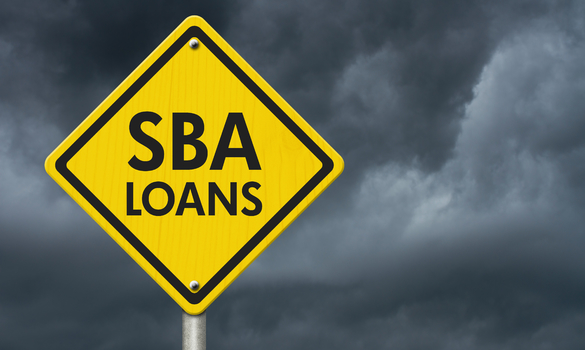We all know the upside of starting a business. If you follow the startup world, every month’s issue of startup magazines feature the rag to riches story of a founder who know has more customers than some countries have citizens.
Those stories are attractive. They invoke emotion. I’ve often found myself day dreaming about what it would be like to have a business with a $1 Billion valuation. It reminds me of those huge mega million jackpots, when I plan how I’ll spend my fortune when I win.
Of course, the odds of winning mega millions are infinitesimal. The odds of me or you starting a $1 Billion company? Probably just as small. Today, I want to talk about how the other half lives. And by “the other half”, I mean the 50% of businesses that will fail within 5 years. And many those businesses were financed with SBA loans. So, what bad things could happen if you default on an SBA loan?
Lose Your Business
If you default on your loan, the lender will be patient, but only up to a point. Once you’ve missed 2 payments (so the loan is 60 days past due), that’s usually when the lender will consider some sort of legal action.
Since you pledged the assets of the business as collateral for the loan (all SBA loan programs require it), the lender can seek a judgement, and once obtained, they would execute on the judgement. That’s all legal jargon for “they can take your business assets and sell them”.
Obviously, it will be hard to run your pizzeria without ovens, and it will be hard to run your sporting goods store without any inventory.
Lose Your Home
If your home has equity in it, and there is a collateral deficiency on your loan, the SBA will require the lender to take a lien on it (only where allowed – some states don’t). If you don’t repay the loan, and the only way to recover the funds is to foreclose on your home, that’s exactly what the bank will do.
There is a silver lining here: the SBA encourages its lending partners to exhaust all other options before foreclosing on a borrower’s personal residence. This means you can try to refinance the home, or come up with a sum of cash that’s roughly the same as your lender would expect to recovery in a foreclosure scenario.
No More Federal Government Help
If you fail to repay an SBA loan, it will land you on the CAIVRS list. This is the list that the federal government uses to keep track of any defaults on federally subsidized debts including SBA loans, FHA, and fedloan student loans.
I’ve had borrowers call me years after they defaulted on an SBA loan because they were declined for an FHA mortgage, wondering how to get off the CAIVRS list. To my knowledge, the only way to get off it is to repay your delinquent debt in full. For some borrowers, repaying hundreds of thousands of dollars can be nearly impossible.
Judgement Against You Personally
Even though your most likely have a corporate entity (S-Corp, LLC, etc) that owns your business, the SBA typically requires the business owners (more than 20%) to personally guarantee their loan.
What this means to you as a guarantor is that if your business fails, the bank and SBA will expect you to repay the debt from your personal assets.
If you don’t pay them willingly, the bank can seek a judgement against you and seek to take your personal assets. Their favorite assets to go after are personal bank accounts and real estate with equity. If you have either, they are easy targets for lenders to shoot for.
Silver Lining
If you don’t have the ability to repay the debt (and can prove it), the SBA does have a process known as Offer In Compromise. If your lender and the SBA agree to your settlement offer, it’s possible to settle your debt for a fraction of what you owe.
 Business First Family Business, Accounting, Finance, Investing, Marketing And Management
Business First Family Business, Accounting, Finance, Investing, Marketing And Management
